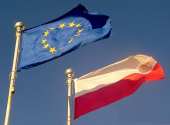
New research commissioned by the home affairs ministry has uncovered that the Dutch royal family amassed approximately €500 million through their involvement in slavery, exploitation,
and forced labor during the Netherlands' "golden age." The study, titled Staat en slavernij (State and Slavery), involved the contributions of 30 academics and historians, following a parliamentary motion in 2021.
Historian Raymund Schütz delved into the profits acquired by stadhouders Willem III, IV, and V from their positions as princes in the republic and their association with trading companies such as the Vereenigde Oostindische Compagnie (VOC) and West-Indische Compagnie (WIC) between 1675 and 1770.
Due to secrecy and the loss of much administrative documentation, limited research had been conducted regarding the Dutch royals' earnings from colonialism. However, it was discovered that the Oranjes secured 1/33 of the VOC's profits without any investment, resulting in a 25,000 guilder payout for Willem III in 1700, equivalent to approximately €4.5 million today, as shared by Schütz with the AD newspaper.
Schütz estimates that the three princes received a total of over two million guilders in dividends from the VOC, equivalent to around €360 million by today's standards. Additionally, the royal family garnered income from other sources, including €46 million from the opium trade through the trade society Amphioensociëteit. They were also entitled to a percentage of the bounty when VOC and WIC ships captured others.
Based on these findings, Schütz concluded that the Oranjes accumulated 3.04 million guilders in colonial profits, equivalent to €545 million in present-day value. Furthermore, they enjoyed substantial earnings from their military and political roles, amounting to an additional €502 million, as emphasized by Schütz, who stressed the significance of considering this regular income due to the stadhouder's involvement in national and international politics and warfare.
Home affairs minister Hanke Bruins Slot addressed Members of Parliament during a briefing, acknowledging the research's portrayal of a "confrontational and extremely painful picture." She highlighted the role played by local government, churches, trading companies, and other entities through the state. Bruins Slot emphasized that this was a story that should have been revealed earlier. The government had already issued a formal apology for the state's participation in slavery last year.
The government plans to initiate further research and engage in discussions with campaign groups and academics to determine the appropriate direction for this endeavor, the minister stated.
In response to the revelations, King Willem-Alexander initiated a comprehensive review of his predecessors' and the royal house's involvement in colonialism at the end of last year. In November, it was announced that experts would assess the royal family's collection of artifacts from the colonial era to ensure that none were stolen or obtained through force.
The king and queen have expressed their full support for this independent research, recognizing its importance in addressing questions regarding the legal acquisition and management of these objects, according to a statement from the royal foundation.
In light of the scrutiny faced by a ceremonial golden coach, which featured a painted panel depicting scenes of colonialism, the royal family has discontinued its use.
This year, on July 1, the king is scheduled to attend Keti Koti, the annual commemoration marking the formal end of slavery, where a formal apology from him is widely anticipated. Additionally, 2023 will mark 150 years since slavery was officially abolished in the Netherlands. Photo by Wikimedia commons.



































